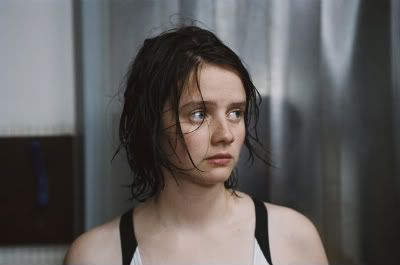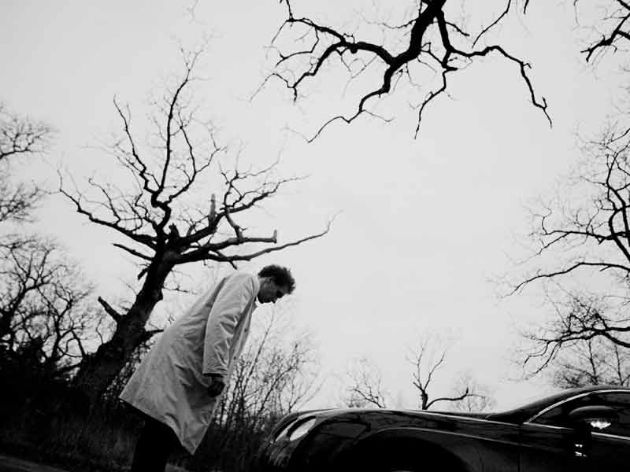
An introverted Parisian architect Mathieu goes back to a small town where he grew up, to tend to his dying mother in her final days. There he spots his old fling Maya on the street. So begins this wish fulfillment, a-second-chance-at-what-could've-been story. Even though they've grown up and have separate lives- Mathieu married to an architect partner and Maya to a brutish local farmer, they've been keeping the memories of their first great love and heartbreaks. This time, they can't take their hands off of each other. So they carry on with their affairs under the noses of their semi-suspecting spouses. Yvan Attal, (My Wife is an Actress, Les Patriots) is great as mild mannered Mathieu who gets blinded by his rekindled love. Valeria Bruni Tedeschi (It's Easier for a Camel, Nennet et Boni), plays indecisive Maya. With her tiny raspy voice and big, deep fawn eyes, Tedeschi could bring out madness in any man.
Cedric Kahn (Red Lights) doesn't patronize his characters, compared to Todd Field's Little Children which is filled with cynicism and its characters' actions are borne out of boredom in white suburbia. In Les Regrets, surely they act like teenagers in heat - Mathieu brings out a frightened little girl in Maya and she encourages his boyish machismo. But even with Mathieu's full-blown obsession and erratic behavior, and Maya's indecisiveness, they are painfully aware of their surroundings and can't shake off the weight of their responsibilities. They are endearing, sympathetic human beings.
With measured and effective Philip Glass's score and Nina Simone's Sinnerman bookending the film, this contemplation on regrets (in which most great literature/art is based upon) gets high marks from me.

